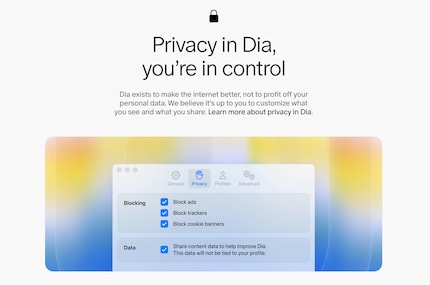
The AI browsers are coming
Perplexity has unveiled a browser with an omnipresent AI agent that answers questions about content and completes tasks. According to reports, OpenAI will also soon be entering the browser business.
Artificial intelligence (AI) is changing the way we surf the web. Several companies are launching browsers in which AI is an integral part of the user interface: Perplexity has presented a web browser called Comet. An AI browser is also expected soon from OpenAI. Meanwhile, the company behind the Arc browser has already had the Dia browser available as a beta for a month.
AI agent instead of link list
With Comet, Perplexity is launching a browser that focuses on the integration of AI. Unlike traditional browsers, Comet no longer relies on a separate search engine, but uses its own AI-supported answer engine as the central element. Queries are answered with summaries from various sources - similar to the new AI overview from Google.
Another feature is the integrated AI assistant, which can answer contextual questions about websites or other content on the screen. For example, you can ask for background information directly while reading a news page. Comet can also take over tasks such as booking hotels, ordering products or comparing suppliers on request.
In a test by the portal «TechCrunch», this worked well in some cases, but not in others. For example, Comet was supposed to find and book a long-term car park at the airport. Although the assistant successfully navigated to a supplier's website, it tried to book the wrong dates. Comet also needs extensive data access for such things - such as the complete Google profile including authorisations for email and calendar. According to Perplexity, this information is only stored locally and is not used to train AI models.
Like many other browsers, Comet is technically based on Chromium. It is currently available for Windows and Mac. It is only available to subscribers of Perplexity Max. This costs a hefty 200 US dollars per month. Comet will later be made available to a wider public.
Perplexity is not alone
According to media reports, OpenAI is also planning to launch its own browser to compete with Google Chrome. Here too, AI is expected to be used not only for search queries, but also for interacting with websites. The browser will be closely linked to ChatGPT and shift interactions to a chat interface. According to the reports, OpenAI also relies on Chromium as a basis and has poached people from Google's Chrome team for development.

Source: The Browser Company
The Dia browser from the Browser Company is already available as a beta version. Dia relies on an omnipresent AI that supports users. It summarises content, generates texts and is designed to adapt to your personal style. You can also create automations with so-called «skills». Dia deletes usage data after 30 days; there is no permanent link to the user account. The browser is currently only available for macOS and by invitation only.
My fingerprint often changes so drastically that my MacBook doesn't recognise it anymore. The reason? If I'm not clinging to a monitor or camera, I'm probably clinging to a rockface by the tips of my fingers.
From the latest iPhone to the return of 80s fashion. The editorial team will help you make sense of it all.
Show all